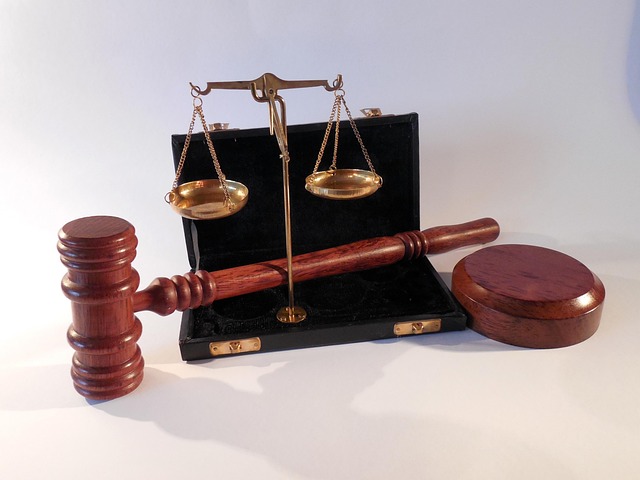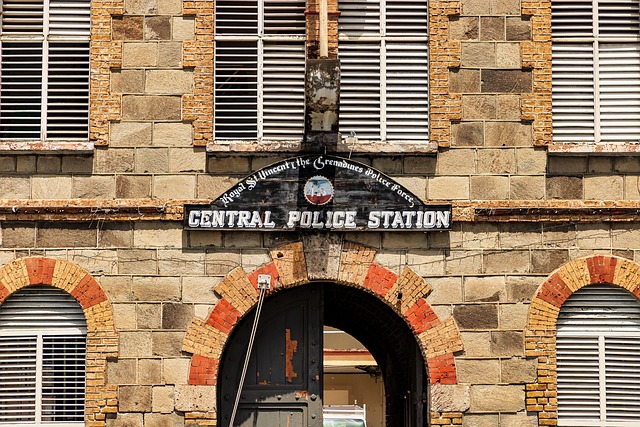Property disputes, governed by local laws and equity principles, are critical in criminal law for protecting legal rights. Balancing property protection with enforcement involves understanding civil vs. criminal law distinctions. Navigating evidence, procedures, and mediation can safeguard assets and rights in ownership conflicts, especially in white-collar cases. Effective legal advocacy ensures fairness, justice, and cost savings through alternative dispute resolution methods.
In the intricate landscape of criminal law, property disputes often emerge as complex cases with significant implications. This article delves into the legal frameworks governing ownership rights, exploring protections and challenges within these conflicts. We dissect the distinction between civil and criminal law in real estate disagreements, delve into evidence and procedures specific to property cases, and examine dispute resolution paths from mediation to trial. Understanding these aspects is crucial for safeguarding one’s legal rights in property ownership conflicts.
- Understanding Property Disputes: Legal Frameworks
- Ownership Rights: Protections and Challenges
- Civil vs Criminal Law in Real Estate Conflicts
- Evidence and Procedures in Property Cases
- Resolving Disputes: Mediation to Trial
Understanding Property Disputes: Legal Frameworks

Property disputes, often arising from disagreements over land use rights or ownership, are a significant subset of criminal law cases. Understanding the legal frameworks governing these conflicts is crucial for both individuals and businesses alike. Each jurisdiction establishes its own rules and regulations that dictate how property ownership and related issues are handled, ensuring fair practices and resolving disputes amicably, where possible. These legal rights are designed to protect the interests of all parties involved, from homeowners to commercial entities.
In many instances, these disputes can escalate and lead to jury trials, especially when one or more parties feel their rights have been infringed upon. Across the country, various laws govern property use, ownership transfer, and dispute resolution, providing a structured approach to tackling such conflicts. The complexity of these cases demands careful consideration of local statutes, which often incorporate principles of equity and common law, ensuring a balanced adjudication process that respects both private rights and public interests.
Ownership Rights: Protections and Challenges

In the realm of criminal law cases, understanding legal rights in property ownership conflicts is paramount. When it comes to ownership rights, individuals possess a fundamental legal right to protect their property and assets from unauthorized intrusion or seizure. This protection forms a crucial pillar of fairness and justice within the criminal justice system. However, navigating these rights can be complex, especially when entangled with criminal investigations and proceedings.
Challenges arise from the delicate balance between ensuring legal rights in property ownership conflicts and facilitating effective law enforcement. Unprecedented track records of achieving extraordinary results for his clients often hinge on how well legal representatives navigate this balance. Strategizing to safeguard ownership while upholding the integrity of investigative processes is a meticulous art, demanding an unprecedented level of expertise and advocacy to protect clients’ interests and their legal rights in property ownership conflicts.
Civil vs Criminal Law in Real Estate Conflicts

In real estate conflicts, understanding the distinction between civil and criminal law is paramount for protecting one’s legal rights in property ownership disputes. While civil law deals with private matters and remedies, such as damages or specific performance, criminal law focuses on state-initiated proceedings to punish misconduct that infringes upon public safety or morality. In real estate, civil lawsuits may arise from contract breaches, property damage, or land dispute, where individuals or businesses seek compensation for losses suffered. On the other hand, criminal charges are brought by the state against individuals accused of white-collar and economic crimes, such as fraud, embezzlement, or unlawful business practices, which often involve sophisticated schemes impacting the broader public interest.
When it comes to resolving real estate conflicts, civil courts offer a more flexible approach, focusing on compensating victims and restoring equilibrium in their respective businesses. In contrast, criminal proceedings aim to deter future misconduct, punish offenders, and protect society from further harm. While both civil and criminal law have their roles in addressing property ownership issues, understanding the unique characteristics of each is essential for mounting an effective defense, particularly in cases involving white-collar crimes. A skilled white collar defense attorney can navigate these complexities, ensuring that individuals’ legal rights are safeguarded throughout the process.
Evidence and Procedures in Property Cases

In property cases, understanding evidence and procedures is crucial for safeguarding one’s legal rights in property ownership conflicts. The process involves a meticulous examination of various forms of proof, including documents, witness testimonies, and physical evidence, to establish the facts of the dispute. These cases often require a deep dive into contracts, deeds, and other legal instruments to determine clear ownership rights. For his clients, ensuring that every piece of relevant information is presented in a court of law can mean the difference between a complete dismissal of all charges or a favorable outcome.
Procedures in property cases are designed to be thorough yet fair, aiming to avoid indictment while reaching just resolutions. This involves meticulous record-keeping, strict adherence to legal protocols, and an open exchange of information between parties. By navigating these procedures effectively, individuals can protect their assets, maintain peace of mind, and preserve their rights as owners.
Resolving Disputes: Mediation to Trial

In criminal law cases, disputes often arise from property ownership conflicts where individuals may feel their legal rights have been violated. Mediation stands as a powerful tool to resolve such issues before they escalate into lengthy and costly trials. This alternative dispute resolution method encourages open communication between parties, aiming to reach an agreement that satisfies everyone involved. By facilitating dialogue, mediation can help avoid the need for a formal trial, allowing for quicker resolutions and potential cost savings.
For those facing criminal charges, understanding this process is vital. In some cases, successful mediation may result in a complete dismissal of all charges, providing individuals with a fresh start. Across the country, many legal systems are recognizing the benefits of mediation, not only as a cost-effective measure but also as a way to foster community healing and reduce prison populations. Ultimately, this approach offers an opportunity for fairness and justice while potentially avoiding indictment.
In navigating complex property disputes, understanding the interplay between civil and criminal law is paramount. From ownership rights and protections to evidence procedures and dispute resolution methods like mediation or trial, each step demands meticulous attention to detail. By familiarizing themselves with the legal frameworks governing property conflicts, individuals can better assert their Legal Rights in Property Ownership Conflicts and secure favorable outcomes. Whether through peaceful mediation or robust litigation, awareness of both civil and criminal law principles ensures a more informed approach to resolving these intricate matters.






